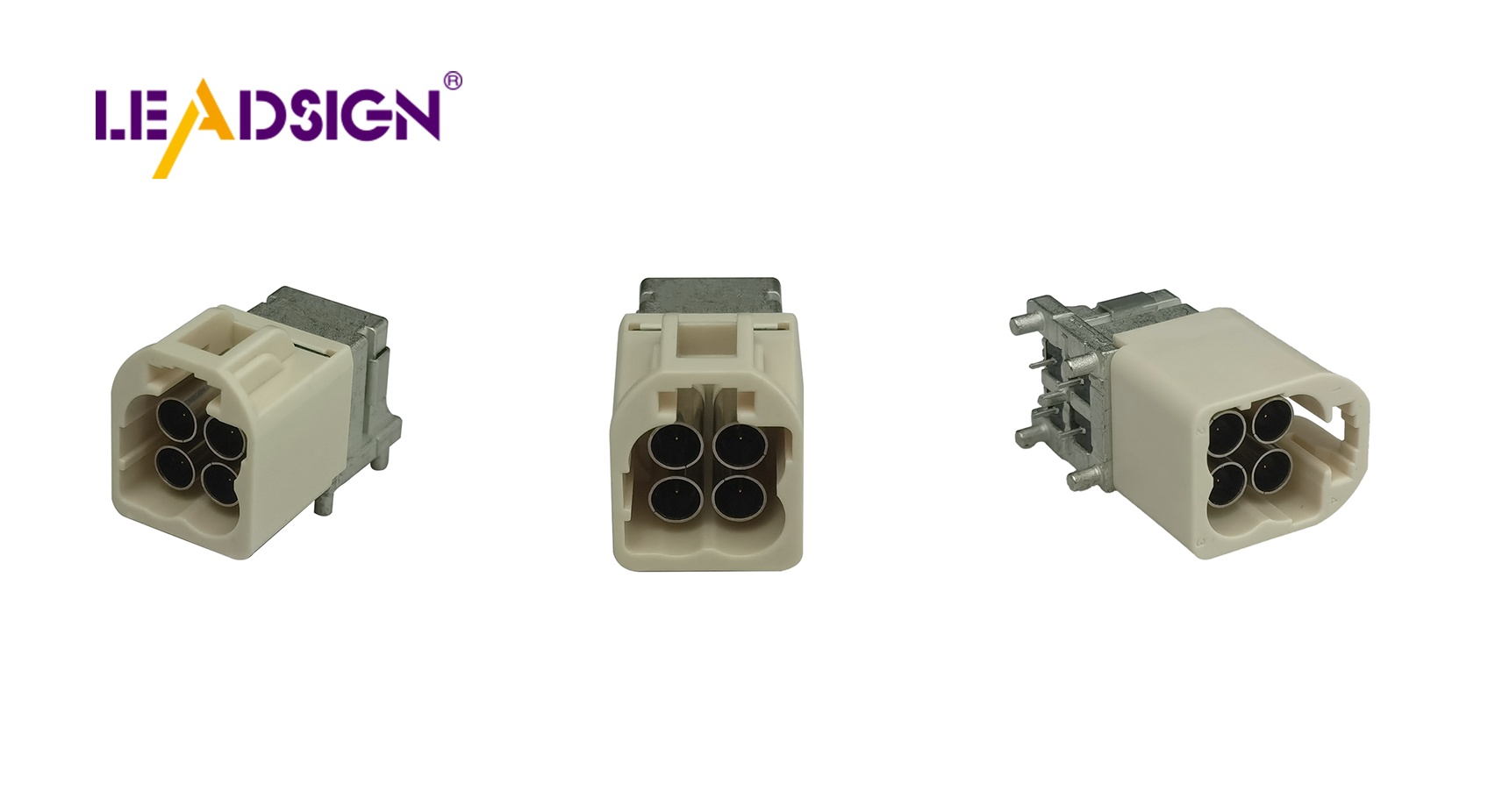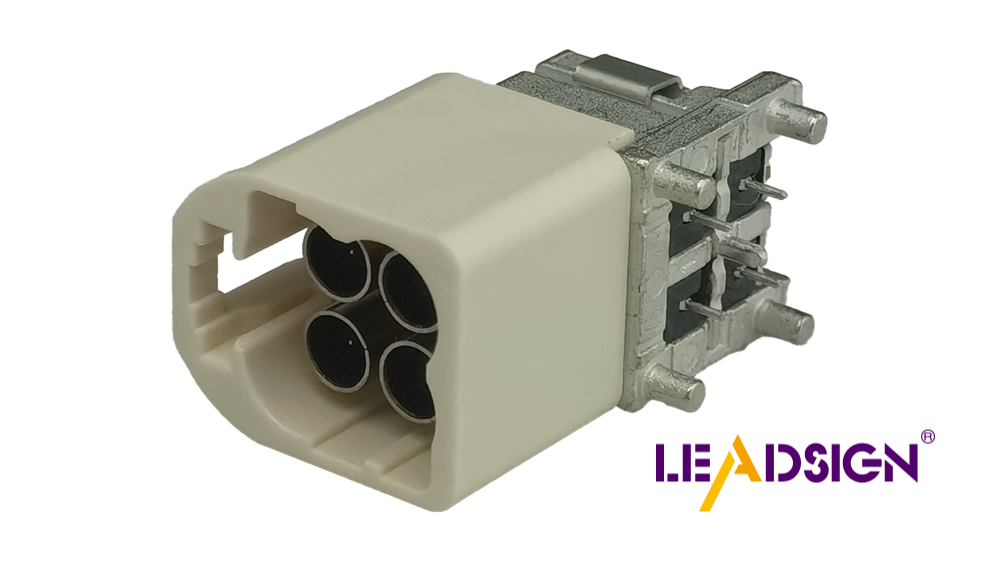Automotive Electrical Connectors Types: The Reliable Choice

Automotive electrical connectors types play a crucial role in vehicles by ensuring the smooth transfer of power and data between various car components. As vehicles become more technologically advanced, the demand for superior connectors increases. These components are essential for maintaining the functionality and safety of cars, ensuring robust electrical connections, particularly in control units. The rise in electric vehicles further amplifies the need for durable connectors. With growing safety concerns, people rely on these connectors to enhance the safety and reliability of automobiles.
Learning About Automotive Electrical Connectors Types
In car engineering, knowing about different electrical connectors is important. These connectors help cars work well and stay safe by making sure electricity flows properly.
DEUTSCH Connectors
DEUTSCH Connectors are famous for being tough and weatherproof. They work great in tough places, so people like to use them where strength is needed. These connectors are often found in boats, big trucks, and building machines because they can handle hard conditions.
Working in Tough Places
DEUTSCH Connectors do well in hard spots. Their strong build lets them work even when there's lots of shaking, wetness, or temperature changes. This makes them perfect for off-road vehicles and big machines that face the weather a lot.
Important Features and Benefits
Weather Resistance: DEUTSCH Connectors keep out water and dust very well.
Durability: They last long, even when used a lot.
Versatility: They come in many types up to 12-way for different uses.
Mil-Spec Connectors
Mil-Spec Connectors are made to meet military rules, ensuring they work well in special car uses. These connectors are built to handle the tough needs of army vehicles.
Military Rules
Mil-Spec Connectors follow strict rules, resisting things like high heat, shaking, and chemicals. This makes them good for army vehicles where they must not fail.
Use in Special Car Uses
These connectors are used in cars needing strong electric links. They're common in defense cars and planes where failure isn't allowed.
OEM Connectors
OEM Connectors are the usual pick for regular cars. They're made to fit what car makers need so they work well every day.
Regular Uses in Normal Cars
OEM Connectors are used a lot in normal cars for lights, music systems, and engines. They make sure everything works safely together.
Custom Options for Special Needs
Car makers sometimes need special connectors just for them. OEM Connectors can be customized so they match new tech and what buyers want.
Knowing these connector types helps anyone working with cars. Each type has its own benefits for different jobs and places. Picking the right one helps make cars better at performing safely and reliably.
Technical Details and Features
Knowing the technical details of car connectors is key. It helps cars work their best. These details show how well connectors move power and data. This affects how cars run.
Impedance
Impedance is important for keeping signals clear in cars. It makes sure signals don't get messed up, which is needed for sending data right. Different car connectors have different impedance levels. This can change how they work in certain uses. For example, some connectors stop signal problems, making data clear.
Why Signal Clarity Matters
Clear signals are needed for car systems to work smoothly. Connectors with good impedance keep signals strong and clear. This stops loss or mess-ups, especially in engine controls and music systems.
Comparing Connector Types
Car connectors have different impedance features. Some high-density ones keep signals clearer by having more contacts. This makes them good for complex car tasks needing many connections.
Frequency Range
A connector's frequency range shows how fast it can send data. Car connectors with wide ranges help new car tech that needs quick data moves.
Effect on Data Speed
Wide frequency lets connectors send data faster, which is key for new car techs. Connectors meeting fast standards help smooth data flow in tough car jobs.
Fit for New Car Tech
New cars have many electronic parts needing fast data moves. Connectors with big frequency ranges fit these parts, helping things like self-driving and driver help systems.
Data Speeds
Data speeds mean how quickly a connector sends info. Fast speeds are vital for systems needing quick info handling, like music players and self-driving tech.
Importance to Music and Self-Driving Cars
Music systems and self-driving cars need fast info moves a lot. Car connectors that handle high speeds make sure these work well, giving real-time info and better user fun.
How They Perform Differently
Different connectors handle speed differently. Some support very fast speeds up to 8 Gbps, fitting speedy uses well. These help makers pick the right ones for what they need.
Benefits of Good Connectors
Strong and Long-Lasting
Good car connectors are very strong. They don't wear out easily. Makers use special materials to make them last longer. This means less fixing and better car performance.
Standing Up to Tough Use
Car connectors face tough stuff like shaking, wetness, and chemicals. Their strong build helps them handle these without breaking down. This strength keeps them working well for a long time.
Lasting Through Hard Times
Connectors need to last in bad weather. They keep working even when things get rough. This means fewer changes needed, saving money for car owners.
Fighting the Weather
Good connectors also fight against weather problems. They stop water and heat from messing things up. This keeps cars working right in all kinds of weather.
Keeping Out Water and Heat
Connectors work in all climates, facing wetness and heat changes often. Good ones block these out, keeping connections safe.
Why It Matters for Cars
Strong connectors help cars stay reliable by stopping weather issues. They make sure electric parts work well, making cars safer and better.
Saving Space
New cars need small designs. Good connectors save space by fitting into tight spots easily. This is key for adding new tech to cars.
Small Designs Fit New Cars
Small connector designs fit tight spaces in new cars with little room for parts. By saving space, they let more features fit without losing quality.
Working Well in Tight Spaces
Space-saving is important in car design now. Good connectors use space smartly, helping make better car systems that work great.
Future Trends in Automotive Connectors

New Ideas in Connector Design
Car makers are coming up with new ideas for connectors. They want connectors that work well with self-driving cars. These cars need connectors to send lots of data and keep things safe.
Needs of Self-Driving Cars
Self-driving cars need special connectors. These must move data fast from sensors and cameras. Good connectors help these systems run smoothly. Makers are making strong connectors that work even in tough conditions.
Joining Advanced Car Systems
New cars have many electronic parts. Connectors link these parts so they work well together. As cars get smarter, connectors must change to fit new tech. This helps cars perform better and stay safe.
New Technologies
New tech is changing car connectors a lot. Electric and smart cars need different kinds of connectors now. Makers are creating new ones to keep up.
Electric Cars' Effect on Connectors
Electric cars need powerful but light connectors for energy transfer. As more people use electric cars, makers focus on making the right kind of connector for them.
Smart Car Connector Trends
Smart cars have features needing strong connectors for communication between systems. The need for good connectors grows as more smart tech goes into vehicles.
Key Insight: The car connector market is leading in new ideas because of electronic systems and the rise of electric and smart vehicles. Makers are building top-notch connectors to meet these needs, keeping cars safe and efficient.
Picking the right car connectors is very important. They help cars work well and stay safe. Good connectors let data and electricity move smoothly in cars. This is needed for today's vehicles. As car tech changes, new connector designs and materials matter more. These improvements make cars better, safer, and more useful. Knowing what's new helps people choose the best connectors. By learning about how connectors will be used in future cars, we can see how they make car systems reliable and efficient.
See Also
Exploring the Benefits of HSD Connectors in Auto Technology
Unlocking the Advantages of HFM Connectors in Auto Sector
Transforming Auto Connectivity: Benefits of HFM Connectors

